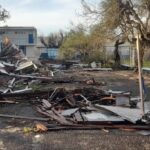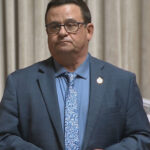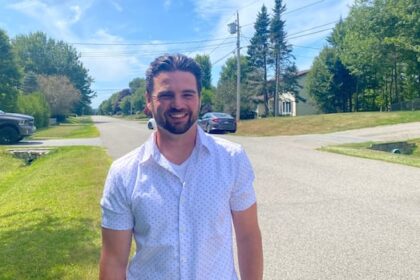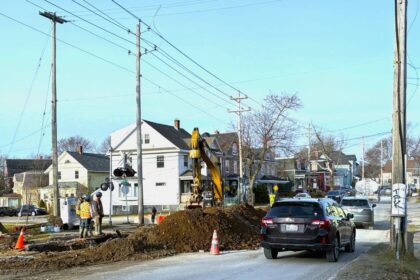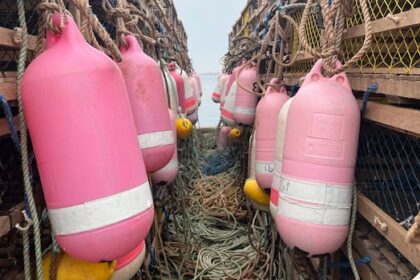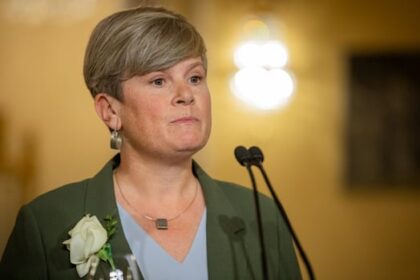Election season is in full swing in the Yukon, and voters will be heading to the polls in less than a week. As political parties near the end of their campaigns, a First Nation in the territory, a housing advocacy organization and the First Nation School Board are also laying out their priorities. Chief of Na-Cho Nyäk Dun calls for public inquiry into mining disaster For First Nation of Na-Cho Nyäk Dun Chief Dawna Hope, mining is top of mind. A heap leach failure at the Eagle gold mine last year near the community of Mayo in northern Yukon caused hundreds of millions of liters of cyanide contaminated water to escape into the surrounding environment on the First Nation’s traditional territory. Cleanup work and water treatment at the site is ongoing. While an independent review board released its findings on the causes that led to the failure earlier this summer, the First Nation is continuing its call for a public inquiry to better understand what it says were the regulatory oversights and systemic failures that contributed to the disaster. The former Liberal government didn’t rule out the possibility of holding a public inquiry, though it wouldn’t commit to one, either, citing the need to review the board’s findings. The Yukon NDP is the only party to fully commit to holding a public inquiry if it forms power. Hope feels her First Nation’s demands for accountability surrounding the disaster have largely fallen on deaf ears. “It is a big issue for us. It’s a big issue for the Yukon, although it seems to get pushed down and downplayed at times,” she said. Hope also believes the next government must make drastic changes to the territory’s mining regulatory system so disasters like Eagle don’t happen again. The First Nation publicly rejected the government’s proposed draft framework agreement earlier this summer, arguing it didn’t go far enough to overhaul its current minerals regime. All three parties said they’ll continue to advance the framework if elected. “We know that we have a lot of mining entities with big potential coming up in the future, and we need to ensure that those are done in the best ways possible, thinking about future generations, and not just boom and bust cycles of get in, get out, really quick,” Hope said. She also said it’s the government’s duty to uphold its Final Agreement with the First Nation in the spirit and intent it was written. She said that includes forming meaningful partnerships when it comes to managing the First Nation’s lands, waters and resources – a topic she believes will be on citizens’ minds when they head to the polls. “I just really feel that this is going to be a very critical election in moving forward,” she said. First Nation of Na-Cho Nyäk Dun Chief Dawna Hope wants the next government to hold a public inquiry into the Eagle gold mine disaster. Photo: Jordan Haslbeck Housing advocacy group seeks strong funding, longer funding agreements Housing and homelessness are a major concern for Kate Meechan, executive director of the Safe at Home Society, a Whitehorse-based non-profit focused on ending homelessness. Meechan said the majority of people the organization supports identify as Indigenous. She hopes the next government will make strong investments in supportive housing, something she said will help alleviate pressure on things like shelters, healthcare and the justice system. Meechan would also like to see funding agreements that go beyond a year at a time. She said the short-term funding makes it difficult for the organization to plan ahead and forces staff to spend time and resources renegotiating budgets instead of focusing on other critical work. “It’s not efficient, and it’s quite frankly stressful for our staff who (don’t) have certainty,” she said. “We can’t implement a strategic plan if we’re only planning from six months…homelessness and housing issues, they don’t cross calendar lines. They will continue to persist if we don’t invest in organizations like Safe at Home and many others in the community that are trying to alleviate pressures and provide the necessary supports.” Meechan added that while all parties have included housing in their election platforms, there hasn’t been much specification about who that housing will serve. “(I’m) not seeing too much explicit mention of housing for folks who are trapped in income support systems, or who are living with no income or who are living in deep, deep poverty in our community,” she said. Meechan said voters will ultimately get to decide how they’d like the next government to tackle the issue. “The Yukon prides itself on taking care of each other and being a caring, giving community, and that needs to extend to words and also how we vote.” Kate Meechan, executive director of the Safe at Home Society, wants the next government to invest in supportive housing and longer funding agreements. Photo: Jordan Haslbeck/APTN News First Nation School Board demands equitable funding formula The First Nations School Board (FNSB) is using the election to springboard its call for a better funding formula with the territory’s department of education. At a press conference on Oct. 22, the board’s chair, Dana Tizya-Tramm, as well as the territory’s French school board, Commission scolaire francophone du Yukon, decried their current funding agreements with the department. Tizya-Tramm said FNSB’s funding agreement is not transparent, equitable or sufficient to sustain operations, forcing it to seek loans and draw from reserves. Shadelle Chambers, a trustee with the board, said the government has “failed” to fulfill its obligations to fund the board, including the transfer payment agreement that comes with it. She said the department applied a one-size-fits-all funding model, which doesn’t account for differences in school population sizes or the fact that most of the board’s schools are in rural and remote communities where operating costs are higher. “A funding formula based only on enrollment further discriminates against rural communities,” she said. First Nation School Board Chair Dana Tizya-Tramm at a press conference on Oct. 22. He says the department of education’s funding formula for the board is riddled with problems – and he wants the next government to make improvements. Photo: APTN News Tizya-Tramm said the department also dragged its feet on transfer payment negotiations, missing a deadline by six months before sending the payment on Christmas Eve. He said the department’s actions left the board with no ability to negotiate the payment, forcing it to sign the agreement “under duress.” He also noted the department arbitrarily changed funding calculations based on enrollment of only self-identified Indigenous learners when the board accepts students of all backgrounds. “This means the illegitimate change the department applied when we were in the midst of a funding crisis caused a reduction of $2 million from what was expected based on the previous agreements calculations,” he said. He said the board has had great success in enhancing education for Indigenous learners, such as improvements in standardized tests and filling teacher vacancies. “It is very demoralizing that we have to advocate for sustainable funding after the school board has already proven that our model is a way of success,” he said. “We require a department of education that is committed to work with school boards as true partners in the best interest of learners. We are looking for a premier and a minister of education that is committed to work with us in a genuine and transparent way.” Tizya-Tramm noted the board has had discussions with all parties which have suggested a review of the Education Act, which the board is open to. He said it’s vital the issue is resolved so children’s education aren’t impacted by politics and bureaucracy. “To date, we have worked with an education department that was not able to produce these formulas. We have shouldered the inherent issues without that continuity, and as education boards who have taken on this responsibility in the Yukon, we need everybody who’s casting a vote to do so with education in mind,” he said. A spokesperson with the department said it was unable to comment on the matter as the government is in caretaker mode until after the election. Yukoners head to the polls on Nov. 3. Continue Reading
From mining reform to school board funding heres what Yukon community leaders want from the next territorial government
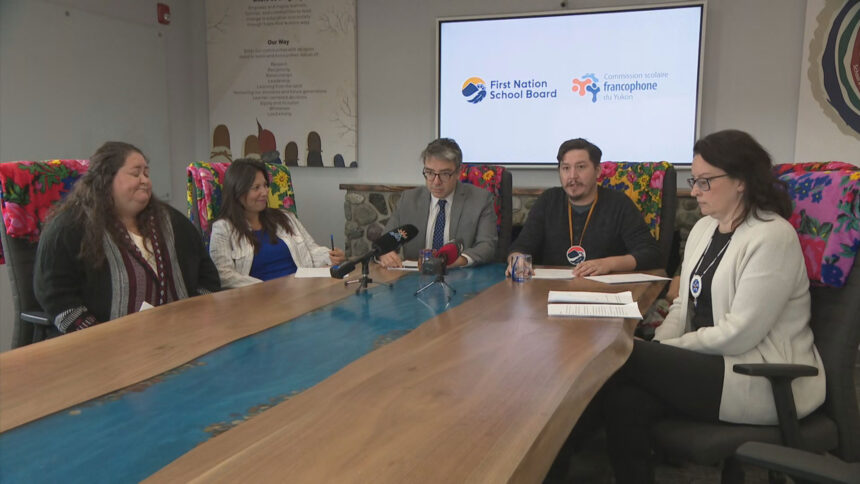
Leave a Comment


